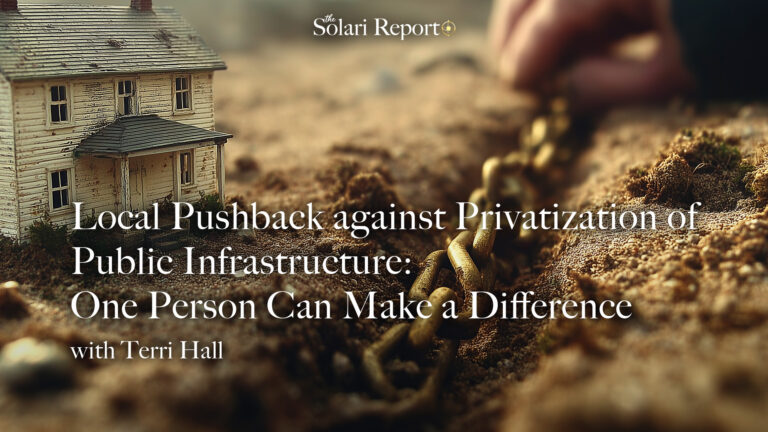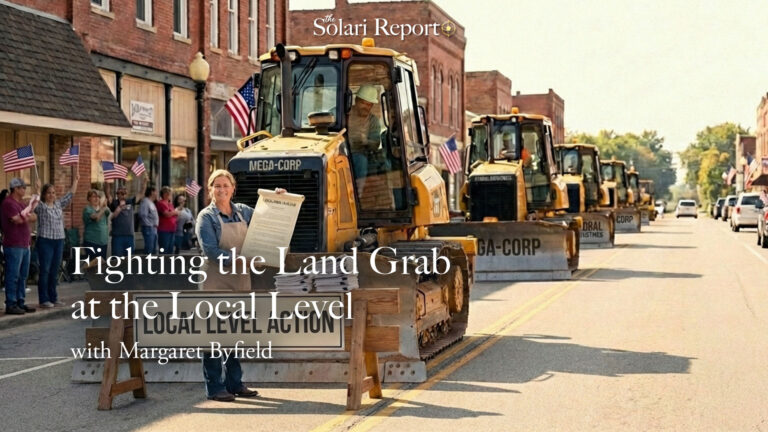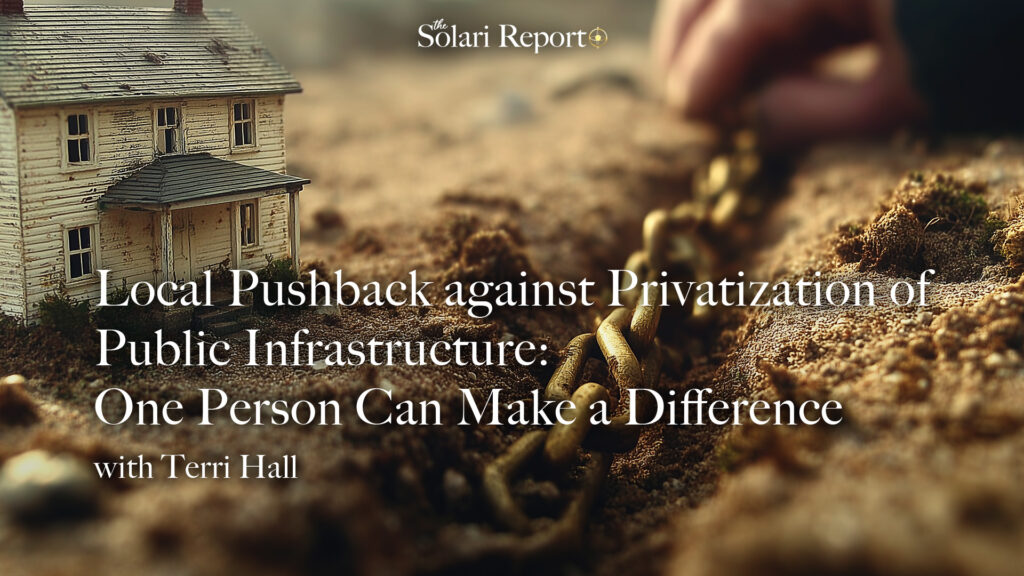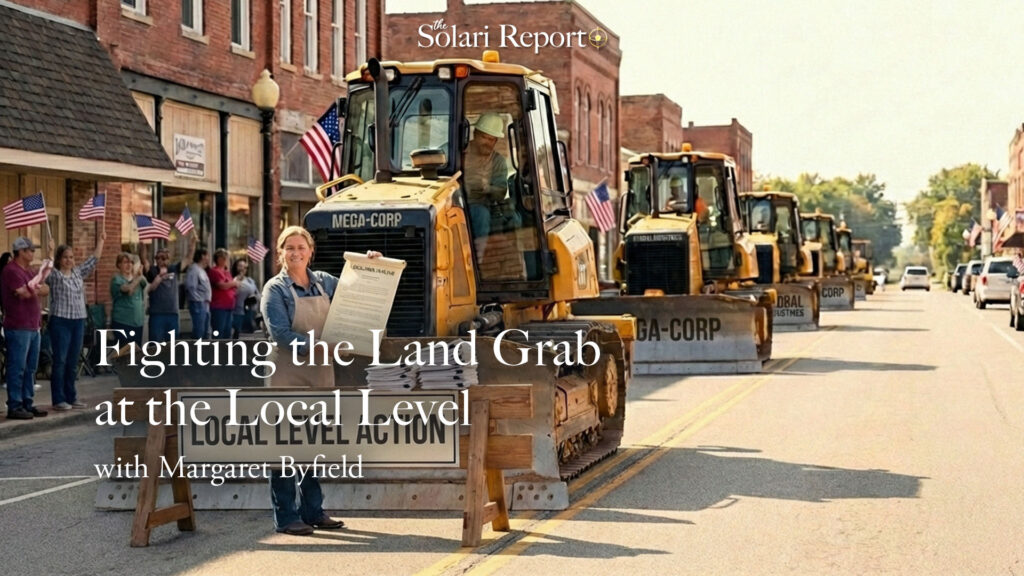Where Have You Gone, George Bailey?
Become a member: Subscribe
- Money & Markets
- Weekly Solari Reports
- Cognitive Liberty
- Young Builders
- Ask Catherine
- News Trends & Stories
- Equity Overview
- War For Bankocracy
- Digital Money, Digital Control
- State Leader Briefings
- Food
- Food for the Soul
- Future Science
- Health
- Metanoia
- Solutions
- Spiritual Science
- Wellness
- Building Weatlh
- Via Europa
Solari’s Building Wealth materials are organized to inspire and support your personal strategic and financial planning.

Missing Money
Articles and video discussions of the $21 Trillion dollars missing from the U.S. government
No posts
- LATEST
- TOP SECTIONS
- SERIES
- Money & Markets
- Weekly Solari Reports
- Ask Catherine
- News Trends & Stories
- Equity Overview
- Cognitive Liberty
- Young Builders
- Building Wealth
- The War for Bankocracy
- Digital Money, Digital Control
- State Leader Briefings
- Food
- Food for the Soul
- Future Science
- Health
- Metanoia
- Solutions
- Spiritual Science
- Wellness
- Via Europa
- BLOGS
- RESOURCES
- COMMUNITY
- My Account
- Log In
- Subscribe
- Search
- Shop
- Support
- Donate
- Log Out
Where Have You Gone, George Bailey?
By Lee Habeeb and Mike Leven
He is America’s most iconic banker. Okay. He isn’t a real banker, but we all know and love him; he’s George Bailey from the quintessential Christmas movie It’s a Wonderful Life. Bailey, the local banker from Bedford Falls, N.Y., confronts slumlord and all-around bad guy Henry Potter for control of his father’s bank, Bailey Building and Loan. Potter tries to bribe Bailey, then tries to steal the bank from the young idealist and businessman. It was a movie, and it was the 1940s, so the good guy won. George Bailey got the bank and the girl, and the bad guy lost, humiliated and shamed by a public that hated him.
Related Reading:
My Bank: How Do I Find a Great Local Bank?
How Do I Find a Great Local Bank? – The Next Generation
2 Comments
Comments are closed.
Our mission is to help you live a free and inspired life. This includes building wealth in ways that build real wealth in the wider economy. We believe that personal and family wealth is a critical ingredient of both individual freedom and community, health and well-being.
Nothing on The Solari Report should be taken as individual investment, legal, or medical advice. Anyone seeking investment, legal, medical, or other professional advice for his or her personal situation is advised to seek out a qualified advisor or advisors and provide as much information as possible to the advisor in order that such advisor can take into account all relevant circumstances, objectives, and risks before rendering an opinion as to the appropriate strategy.
Be the first to know about new articles, series and events.

2 Comments
-
Thanks Catherine for this wholeloada articles about those big banks, the littler banks, and why it makes a difference where you bank. As you know, I work for Exchange Bank headquartered in Santa Rosa, CA. Our little bank isn’t perfect, but a main distinguishing factor is that in 1948, 51% of the ownership was placed in a perpetual trust…………..Every year 51% of the bank’s dividends are given to Santa Rosa Junior College to be handed out to hundreds of local kids so they can attend the JC. It’s totaled about $70 million + since 1948. I can say it makes a big difference in the community and around $1,000,000 a year directed toward paying junior college fees goes way farther and helps a whole lot more kids than a similar amount spent on 4-year, now-quite-expensive U.C. school or private institutions……………….I try to explain all this to our middle-class, hard working friends, some of whom are stressed by the annual tuition they’re paying out for their kids to go to University of California…..
(…sigh….Old habits die hard, it seems….) But I will keep working on them. And handing them your articles. You never know WHO is gonna wake up WHEN. Thanks Catherine. -
When you live near a bank like Exchange, why would you ever bank at the institutions clearly guilty of significant financial fraud and harmful behavior?
I CAN NOT FATHOM DOING SO!
But if you do, please do not complain about what THEY are doing. It is not they, it is YOU!
Thanks, Megan, for helping to give us real banking alternatives.
Comments are closed.
























































































































Thanks Catherine for this wholeloada articles about those big banks, the littler banks, and why it makes a difference where you bank. As you know, I work for Exchange Bank headquartered in Santa Rosa, CA. Our little bank isn’t perfect, but a main distinguishing factor is that in 1948, 51% of the ownership was placed in a perpetual trust…………..Every year 51% of the bank’s dividends are given to Santa Rosa Junior College to be handed out to hundreds of local kids so they can attend the JC. It’s totaled about $70 million + since 1948. I can say it makes a big difference in the community and around $1,000,000 a year directed toward paying junior college fees goes way farther and helps a whole lot more kids than a similar amount spent on 4-year, now-quite-expensive U.C. school or private institutions……………….I try to explain all this to our middle-class, hard working friends, some of whom are stressed by the annual tuition they’re paying out for their kids to go to University of California…..
(…sigh….Old habits die hard, it seems….) But I will keep working on them. And handing them your articles. You never know WHO is gonna wake up WHEN. Thanks Catherine.
When you live near a bank like Exchange, why would you ever bank at the institutions clearly guilty of significant financial fraud and harmful behavior?
I CAN NOT FATHOM DOING SO!
But if you do, please do not complain about what THEY are doing. It is not they, it is YOU!
Thanks, Megan, for helping to give us real banking alternatives.